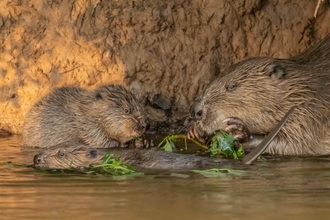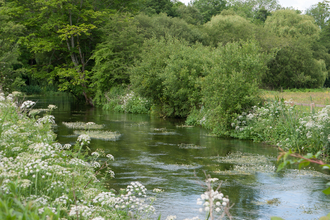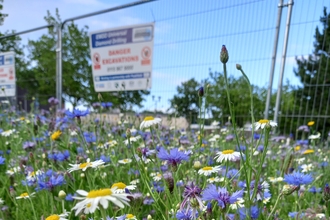A new proposal from a group of peers could disarm the most damaging aspect of the Planning & Infrastructure Bill and reduce the risks that it currently poses to the natural world. The Bill, as it currently stands, represents one of the largest dismantling of protections ever seen for the most precious wildlife habitats and species.
Part 3 of the Planning & Infrastructure Bill introduces a new system where environmental impacts of development in some locations could seek to be addressed through Environmental Delivery Plans (EDPs). The peers’ proposal would mean that protected wildlife – from woodlands and sand dunes to otters and barn owls – would not be covered by EDPs and so be saved from a broadbrush approach which threatens to undermine their protection.
As the Bill nears its final debate in the House of Lords, The Wildlife Trusts are calling on peers to support Amendment 130 – tabled by Baroness Willis of Summertown and a strong coalition of other peers – which would remove sensitive natural habitats and species from the EDP process. Peers are urged to adopt this amendment to reduce the risk of damaging an already severely diminished natural world, alongside supporting efforts to further minimise the threat by adding the mitigation hierarchy to the Bill.
The mitigation hierarchy is the tried and tested principle that requires developers to first seek to avoid harm to nature, and to only move to mitigation and then compensation as a last resort. The continued absence of the mitigation hierarchy from the face of the Bill is a sizable missing piece within the new EDP system.
Craig Bennett, chief executive of The Wildlife Trusts, says:
“It’s crunch time for improving this extremely damaging Bill and for reducing its very real risk to wildlife. Report after report catalogues appalling nature declines – only last week we heard of another species becoming extinct in Europe, the beautiful slender-billed curlew.
The approach that the Bill currently sets out could lead to one of the biggest reversals of protections for our precious wildlife that we’ve ever seen, paving the way to more such extinctions.
“The Government appears intent on taking power and decision making away from local communities whilst Rachel Reeves peddles lies scapegoating nature for a struggling economy. The Government can still get this right – we need homes for people, but destroying homes for wildlife is not the way to do it. We urge peers to rally behind this truth.”
The Wildlife Trusts have published a briefing for report stage of the Bill in the Lords. In addition to backing for Amendment 130 and calling for the mitigation hierarchy to be embedded in the Bill through Amendment 148, it calls for the future of precious chalk streams to be safeguarded via Amendment 94. The Wildlife Trusts helped secure a package of Government amendments to the Bill in July* which introduced some welcome nature safeguards, but have warned of ongoing significant risks which the new amendments from peers would address.
A recent flurry of last-minute Government amendments to the Planning & Infrastructure Bill were criticized by The Wildlife Trusts for their lack of care and the fact they were “hurried forward at the insistence of the Treasury, to try and grab headlines about growth measures”.
This year The Wildlife Trusts and other nature charities have devoted time and energy to shining a spotlight on the damaging aspects of the Bill – and have provided evidence to bust the myth that nature protections are blockers to economic growth. For details, see the releases and blogs further below.



